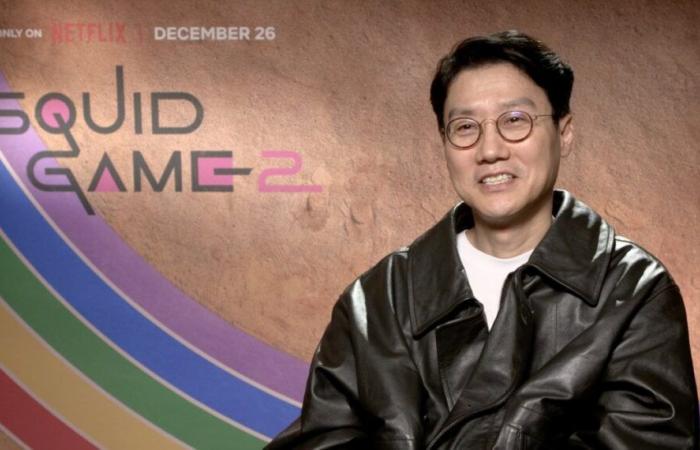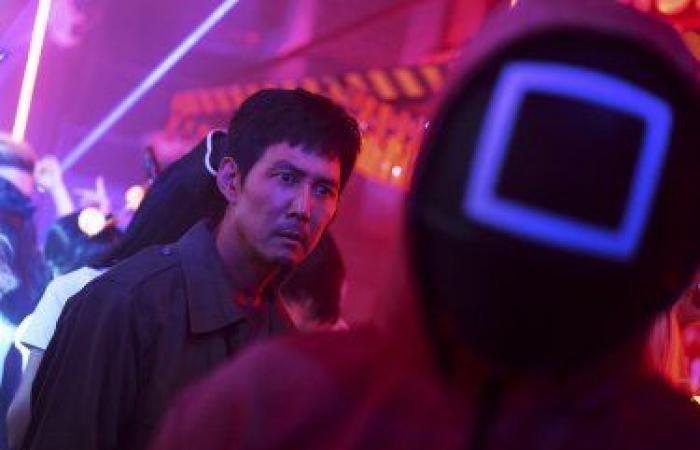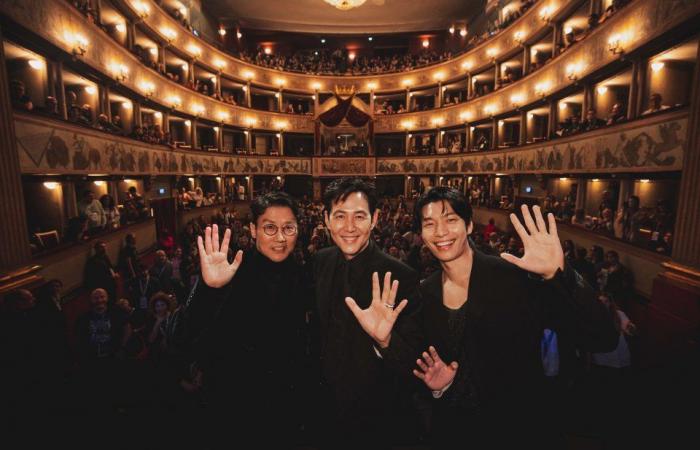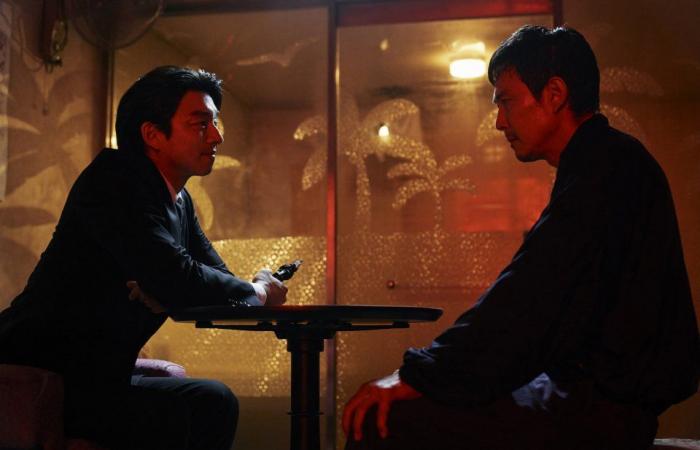The great success of Squid Gamethe most watched non-English Netflix series in the world, is not only due to the quality of the writing, the captivating aesthetics, the skill of the actors and the imagination of the games (which certainly don't hurt). The story created by Hwang Dong-hyuk it captures us because it says something that we all know and know deep down, but often remove. It is no coincidence that the author, also showrunner and director, wrote it in a moment of great economic and personal difficulty. However, with Squid Game 2_, streaming on Netflix from 26 December, he has gone further.
In the new episodes the winner of the games, Seong Gi-hun, aka number 456, played by Lee Jung-jaewants to participate again and not because he has gone mad: he wants to destroy the system from within. The second season is even more political and, as great artists manage to do, Hwang Dong-hyuk anticipated the riots and protests that began in December in South Korea, when the President Yoon Suk-yeol he called martial law for personal interests.
And in fact, he had anticipated it a little in Lucca, where the situation was critical Squid Game 2 was presented as a world premiere at Lucca Comics & Games 2024. Here's what he told us in our interview, in which he warns us: those who have power don't care about us.
Squid Game 2: intervista a Hwang Dong-hyuk
In the first episode of the second season Squid Game Seong Gi-hun tells the people involved in the games that he will “find them”: like Liam Neeson in the saga I will find you (Taken in the original). And in fact these new episodes are one revenge storygenre that the Korean cinema it made it great. Because movies and Korean series of revenge are so beautiful?
Hwang Dong-hyuk: “I think it's a little different in the case of Gi-hun's story, because It's not about personal revenge. He is not trying to get revenge for the harm he has suffered. He has a bigger plan: he wants to stop the people who created the games. He wants to disrupt that system, which is a metaphor for capitalism. That's where his desire for revenge comes from. So you have to look at his actions from a different perspective: it's not a personal revenge, but a much bigger plan“.
The real villain is capitalism
Another winning feature of Squid Game it is the strength of the characters: often crazy, exaggerated, theatrical. The recruiter for example: an agent of chaos, he almost seems like the Joker. As Michael Cane's Alfred in The Dark Knight would say: a man who only wants to watch the world burn. Is it like this in our reality too? Some people just want to see everything burn?
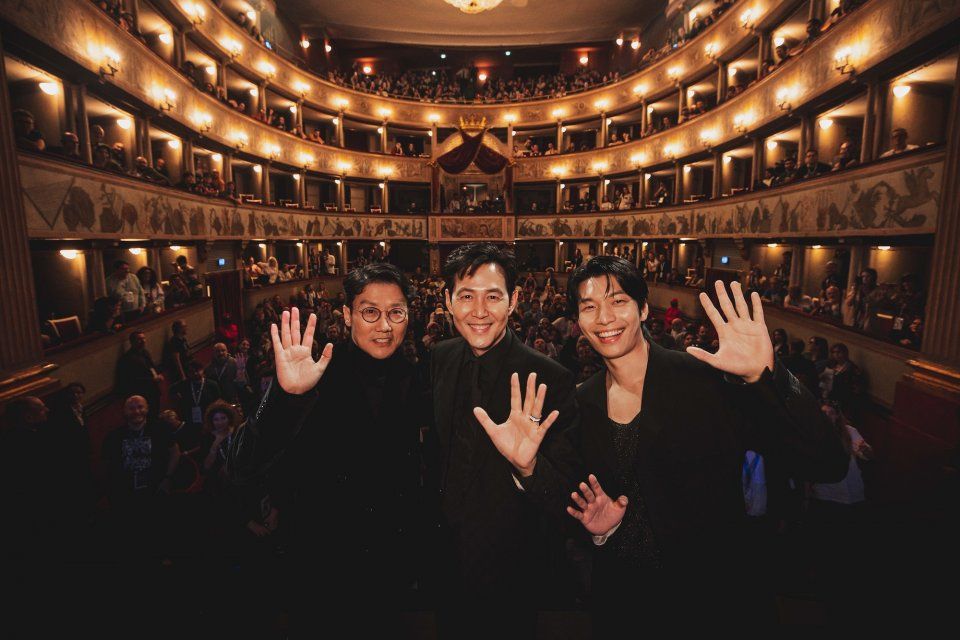
Hwang Dong-hyuk: “I don't think this is the right approach to Squid Game: when I created the VIP characters I imagined them as people at the highest level of capitalist society. Political leaders, people who own most of the wealth. They are the ones who maintain and control the system, who make their fortune thanks to the work and suffering of those at the lowest levels of the pyramid. I'm not saying they enjoy watching people suffer, but they certainly don't care. Because they sincerely believe that they live in a free market, where people are paid their worth, they do not feel responsible for their suffering. So they are very different from a villain like Joker. In the series we talk about social injustice“.
Squid Game games
I games in the series they scare us so much because they associate something we enjoy when we are little with violence. We are not aware of it, but when we play as children, are we learning the rules of society? And do they prepare us for what we will have to face or do they make us violent?
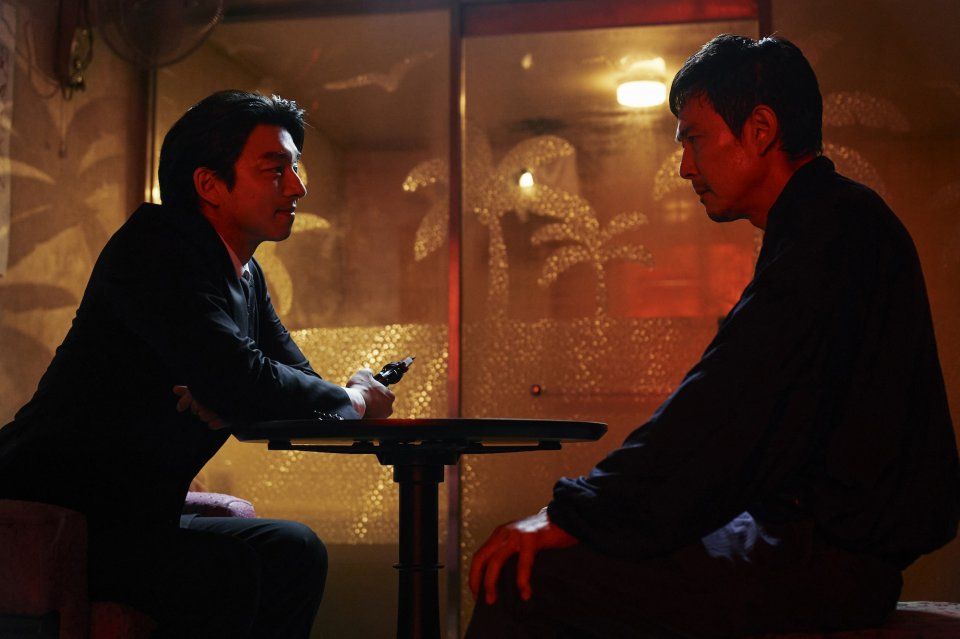
Hwang Dong-hyuk: “When you play as a child you just want to have fun. Thanks to these games, little ones can learn to collaborate, or to be combative, and learn to win. They can also help you gain physical strength. The games that we show in Squid Game instead, starting from the rules, are a metaphor, an allegory of what really happens in a very competitive society. Those who lose the race are destined to poverty and disease. Losers die. In our story we tell more of an allegorical violence and I hope that viewers perceive it as a metaphor“.

